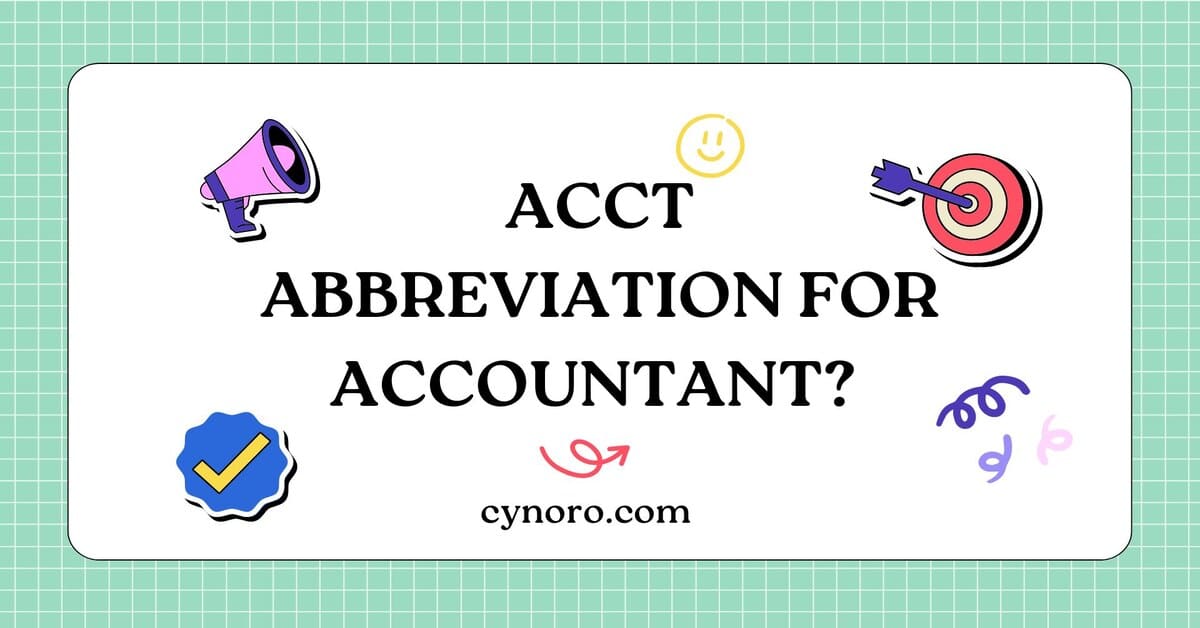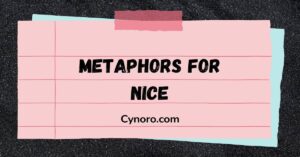The abbreviation for Attention you’ve probably seen it a thousand times in emails, business letters, and even invoices, but do you really know what it means and when to use it? If you’ve ever wondered how to communicate more effectively and professionally, mastering this simple abbreviation can be a game changer.
In this article, you’ll discover everything you need to know about “Attn”, from its definition and pronunciation to the best times to use it. Whether you’re drafting a formal email or addressing a package, knowing when and how to use this abbreviation will make your communication clearer and more efficient. Let’s dive in!
What is the Abbreviation for Attention?
The abbreviation “Attn” is a short form of the word “Attention.” It’s widely used in business communication, particularly in formal writing such as letters, emails, and memos. You might see it in a variety of professional settings, from addressing an individual to directing your correspondence to a specific department or team.
In business correspondence, “Attn” helps save space and streamline communication. It serves as a quick way to grab attention, ensuring that the intended recipient or department is highlighted. For example, if you’re sending a letter to an organization, you might use “Attn” before the recipient’s name to ensure the letter reaches the correct person.
Common Uses of “Attn”:
- Emails: To direct an email to a specific recipient or department.
- Business Letters: To address correspondence to the right person or department.
- Invoices: Often used to direct billing information to the correct contact or department.
- Shipping Documents: Used to ensure that shipments are addressed to the correct individual or team.
What Does Attention Mean?
Before diving into the abbreviation, it’s important to understand the meaning of attention itself. Attention refers to the act of focusing mental effort on something. It’s the ability to concentrate, observe, and give notice to something that requires thought or consideration.
In the context of business communication, attention plays a crucial role in ensuring clarity. When you pay attention to the details, you’re ensuring that the message is understood and acted upon appropriately.
In the workplace, attention can be essential to maintain productivity. A simple distraction can result in missed deadlines, errors, or confusion. That’s why clear communication—directed at the right person or department—is so important.
Why is Attention Important in Communication?
- Focus: Helps maintain focus on key points and objectives.
- Awareness: Ensures that the recipient is aware of critical information.
- Consideration: Demonstrates a thoughtful approach to communication.
Why Abbreviate Attention?
The abbreviation “Attn” is used primarily for efficiency in communication. In business settings, time is valuable, and being able to communicate concisely while maintaining clarity is key. The abbreviation helps save space, ensuring that information is conveyed in a shorter, more direct form.
Additionally, abbreviations like “Attn” are often more noticeable than a full word, drawing the recipient’s attention quickly to the essential part of the message. This makes it easier for the reader to understand the focus of the communication at a glance.
Key Reasons to Use Abbreviations:
- Time-saving: Shortening words can help speed up communication, especially in emails or messages.
- Clarity: Abbreviations can make the purpose of the communication clearer.
- Consistency: Using standard abbreviations in professional settings maintains consistency across documents.
Other Common Abbreviations for Attention
While “Attn” is by far the most popular abbreviation for attention, there are other variations and shorthand used in specific contexts.
Alternatives to “Attn”:
- ATN: A less common, but still recognized abbreviation for “Attention.”
- Re:: Short for “Regarding,” often used in the subject line of emails and memos, similar to directing someone’s attention.
- FYI: For Your Information, often used when sharing something that requires attention but is not urgent.
These abbreviations are used in both professional and personal communication to ensure clarity and directness.
Pronunciation of ‘Attn’
When you come across “Attn” in writing, it’s easy to assume it’s pronounced as it’s spelled. However, in oral communication, the “Attn” abbreviation is typically pronounced as “At-ten.”
In professional settings, it’s unlikely that you’ll need to pronounce “Attn” often, but knowing how to read and pronounce it properly when it appears in documents or correspondence is essential for effective communication.
When and Where Should You Use ‘Attn’?
“Attn” is primarily used in business writing to address specific recipients or departments. It’s important to use the abbreviation in the right context to avoid confusion or lack of clarity.
Common Situations for Using “Attn”:
- Business Letters: When sending a letter to a company or organization, use “Attn” to ensure the letter reaches the correct person or department (e.g., “Attn: John Smith”).
- Emails: Direct emails to specific individuals or teams by including “Attn” in the subject line.
- Invoices and Bills: Direct billing information to the relevant department (e.g., “Attn: Accounts Payable”).
- Shipping or Delivery: To direct packages to the right person or department (e.g., “Attn: Shipping Department”).
Avoid overusing “Attn” in casual communication, as it is best suited for formal business contexts.
Acronym for Attention vs. Abbreviation for Attention
While “Attn” is commonly called an abbreviation, some might mistakenly refer to it as an acronym. However, there is a distinct difference:
- Abbreviation: A shortened form of a word or phrase (e.g., “Attn” for “Attention”).
- Acronym: A type of abbreviation formed from the initial letters of a phrase, typically pronounced as a word (e.g., NASA from National Aeronautics and Space Administration).
Since “Attn” is not pronounced as a word (it’s read letter by letter), it remains an abbreviation, not an acronym.
How to Pronounce “Attention” Correctly
The full word “Attention” is pronounced as “uh-TEN-shun.” It is essential to say the word clearly, especially in formal settings where your pronunciation reflects your professionalism.
When writing, attention can take on different meanings depending on the context. It can refer to mental focus, the action of addressing someone, or the quality of giving notice to something or someone important.
Synonyms and Antonyms for Attention
Synonyms for Attention:
- Focus: Concentration on a task or subject.
- Awareness: A state of being mindful or conscious of something.
- Concentration: Directing one’s mental faculties toward a particular object or task.
- Consideration: Giving thought or regard to something.
- Notice: Paying attention to something or someone.
Antonyms for Attention:
- Distraction: Lack of focus; something that draws attention away.
- Neglect: Failure to pay attention or take care of something.
- Inattention: The lack of focus or concentration.
- Disregard: Ignoring or not paying attention to something.
- Indifference: Lack of interest or attention.
Understanding the synonyms and antonyms of attention helps you better convey the nuances of your message in both professional and personal communication.
The History of the Word “Attention”
The word “attention” comes from the Latin “attentio,” meaning “a stretching toward,” a state of mental focus or concentration. Over centuries, the word evolved into the modern English term we use today, with its meaning remaining closely tied to the concept of mental focus.
The abbreviation “Attn” likely emerged in the early 20th century as businesses and individuals sought to simplify written communication. As organizations grew and the volume of correspondence increased, abbreviations like “Attn” became essential for streamlining the flow of information.
Other Examples of Abbreviations Related to Attention
In addition to “Attn”, there are several other abbreviations commonly used in business and professional writing to save time and increase clarity.
Related Abbreviations:
- RSVP: Répondez s’il vous plaît (Please respond, commonly used in invitations).
- FYI: For Your Information, used to bring attention to something informative.
- Re:: Short for “Regarding,” often used in emails or memos to direct attention to a specific subject.
These abbreviations, like “Attn”, help enhance the efficiency of communication, making it faster and easier to get messages across.
Examples of ‘Attn’ in Context
Here are a few examples of how you might use the “Attn” abbreviation in business communication:
- Email:
Subject: Attn: John Smith – Invoice #12345
Body: “Dear Mr. Smith, Please find attached the invoice for the services rendered. Should you have any questions, feel free to reach out.” - Business Letter:
“Attn: Accounts Payable Department
XYZ Corporation
Dear Sir/Madam,
Please find attached Invoice #12345 for your review.” - Shipping Label:
“Attn: Customer Service Department
XYZ Corporation
123 Main St.”
These examples show how “Attn” is used to direct the focus to a specific department or individual, ensuring that the correspondence reaches the right recipient.
Common Mistakes with the Abbreviation ‘Attn’
While using “Attn” is generally straightforward, there are a few common mistakes to watch out for:
- Overuse: Don’t use “Attn” excessively in casual or personal communication. It’s meant for formal, business-related correspondence.
- Incorrect Placement: Always place “Attn” at the beginning of the line, followed by the recipient’s name or department. Placing it in the middle of a sentence can confuse the reader.
- Misinterpretation: Ensure that the recipient knows what “Attn” means, especially in informal contexts where abbreviations might not be familiar.
Final Thoughts on the Abbreviation for Attention
The abbreviation “Attn” is a simple but powerful tool in business communication. It helps professionals focus attention on the right person or department, ensuring that correspondence is clear, concise, and efficient. By using “Attn” appropriately, you can improve the quality of your communication, avoid confusion, and save time.
In a world where attention is a precious commodity, understanding how to effectively direct it can make a significant difference in the success of your professional correspondence. Keep these tips in mind, and you’ll be able to use “Attn” and other abbreviations like a pro!

Tony James is an expert blogger at Cynoro, specializing in the English language. With a passion for teaching and writing, he empowers learners to achieve fluency and confidence.








